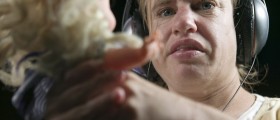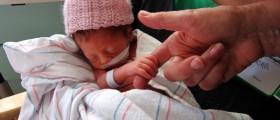
What is Dyspraxia?
Dyspraxia is a condition that occurs in the early childhood and has impact on motor skills. The cause for appearing of this severe condition is unknown, but there have been cases of dyspraxia that appeared due to traumatic brain injury. The big problem of gathering information about dyspraxia is that this condition often remains undiagnosed. It is estimated that 2-10% of the population have this condition and a vast majority of this number (70-80%) is of male sex.
Symptoms of Dyspraxia
Symptoms of dyspraxia can develop in infancy. They are presented as difficulty in crawling, using cups and walking delays. Because of the fact that we don’t get to start walking at the same age, it is difficult to diagnose this condition. As the time passes by, other symptoms of dyspraxia develop. Due to dyspraxia, writing can be a real challenge and hypersensitivity to clothing or brushing teeth or hair can develop as well. Children can behave in obsessive and paranoid manners, which will result in difficulty to create an emotional relationship with their surroundings. Because of all these symptoms, environment can expel a child from a society, causing even more severe loneliness.
Other difficulties occur in the later life of a child, and they are results of empowered motor skills. These children find it very difficult to practice any sport or to ride a bicycle. Some things that are considered to be a part of our life, can be very difficult for the children with dyspraxia, and such things are even tying shoes or dressing easily. All of this can make a child feel very uncomfortable in a society and it can create additional psychological problems. It is very difficult for a child who suffers from this condition to fit into the social background, because everyone thinks that they are just lazy, while in fact, they are trying really hard. This condition has close link to ADHD, which causes problems that occur in school and in their homes.
Diagnosis
An early diagnosis of this condition is very important, because it can help a child and his parents to fully understand the symptoms, to learn how to deal with them, and to try to improve motoric skills. Their intelligence is not ruined and if parents turn to improving skills that demand intelligence and thinking later in the life, children with this problem can be very successful in their profession. Children in which dyspraxia is diagnosed at an early age can get better by attending, along with their parents, speech therapies, play therapies, and therapies that improve motoric skills. Parents have to be with them and they have to be armed with a lot of patience and compassion. Otherwise, children who were not treated in time can develop difficulty in communication, and be rejected by the rest of the world. Nowadays, there are many supportive groups who help people to understand this condition and live with it.

















Your thoughts on this
Loading...